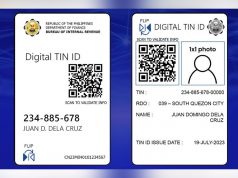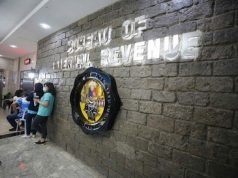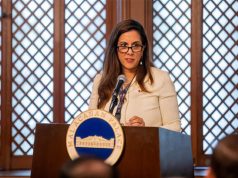The Bureau of Internal Revenue came under fire on social media on Thursday for issuing a memorandum that seeks to tax online sellers despite the billions of unpaid taxes of some Philippine offshore gaming companies or POGOs.
In BIR’s Memorandum Circular No. 60-2020, dated June 1, it notified the public that:
“All persons doing business and earning income in any manner or form, specifically those who are into digital transactions through the use of any electronic platforms and media, and other digital means, to ensure that their businesses are registered pursuant to the provisions of Section 236 of the Tax Code, as amended, and that they are tax compliant.”
This order covers merchants, delivery firms and internet service providers and payment facilitators that use the digital platform for their businesses and services.
The agency also said it will impose a penalty to those who will fail to register their business activities or update their registration status on or before July 31, 2020.
Following BIR’s announcement, the acronym “POGO” peaked the top spot of the Philippines trends on Twitter with more than 24,800 tweets as Filipinos questioned the bureau’s motive for targeting online sellers instead of going after POGOs, which failed to pay P50 billion taxes last year.
Sen. Risa Hontiveros likewise expressed the same criticism on her social media accounts, saying that online sellers are only coping with their losses due to the pandemic.
“Bakit ba ang luwag natin sa POGO pero ang lupit natin sa mga Pilipino?” Hontiveros said.
“Imbes na online sellers, baka pwedeng singilin muna ang mga POGO na may 50 billion pesos in unpaid taxes? Hindi yung dagdag-perwisyo pa sa sarili nating mga kababayan na kaunti na nga lang ang kita para pandagdag-gastos sa pamilya nila,” she added.
Bakit ba ang luwag natin sa POGO pero ang lupit natin sa mga Pilipino?Imbes na online sellers, baka pwedeng singilin…
Posted by Senator Risa Hontiveros on Wednesday, June 10, 2020
Hontiveros also recalled the national government’s decision to resume the controversial industry despite the health risks and existing anomalies.
“Kahit na may 50B pesos unpaid taxes ang mga POGO, kahit na di essential, pinayagan pa rin silang mag-operate sa ilalim ng ECQ. Mayroon din silang mass testing pero tayo wala,” she said.
Taxing POGOs and online merchants
Since December last year, the Department of Trade Industry have been seeking to regulate online transactions to protect buyers from fraudulent products.
With the growth of online selling amid the COVID-19 pandemic, the DTI reminded online sellers to display the prices of their wares as mandated by the Consumer Act of the Philippines.
READ: PM is the key? DTI reminds online sellers to display prices on online platforms
E-commerce
The e-commerce industry boomed amid the novel coronavirus pandemic as Filipinos explored digital platforms to compensate for their financial losses for over two months following the lockdown imposed last March.
Some Filipinos pointed this out as they aired their frustrations over the taxing scheme.
“Many people who lost their main source of income turned to online selling. Why tax their only way to survive at these times? Why not go after the billionaires, the untaxed illegal POGO?” one user said.
“Tapos my threat of penalty pa and all. Bakit di nila habulin ang utang ng POGO?” another user said.
Activist Justin Dizon also argued that such an order is unfair for Filipinos who were only struggling to make ends meet while coping with the crisis.
“Kulang ang ayuda at hindi naman nawawala ang gastos sa araw-araw kaya kailangan din talagang dumiskarte. Yung mga may ipon sa bangko, naglalabasan na ang ipon. Yung iba may utang na nga,” Dizon said.
If this is in virtue of a law, I just find it unfair.
Kulang ang ayuda at hindi naman nawawala ang gastos sa araw-araw kaya kailangan din talagang dumiskarte. Yung mga may ipon sa bangko, naglalabasan na ang ipon. Yung iba may utang na nga.
Also, paano ang implementation nito?
— Justin Dizon #JunkTerrorBillNOW (@jjcdizon) June 10, 2020
Large online marketplaces such as Lazada Philippines and Shopee earlier launched initiatives to help their merchants with their losses.
There are also local-owned apps such as Community Mart, a project by Vice President Leni Robredo, and Delivery-e, a project by DTI and the US government for Luzon farmers.
Other neophyte sellers, meanwhile, tapped Facebook and Instagram to promote and sell their products.
POGOs
Internal Revenue Commissioner Caesar Dulay told the Philippine Daily Inquirer last May that nearly all licensed firms and providers in the country have not yet settled their tax payments.
Last February, BIR also bared that POGOs still owed the government P50 billion in the form of franchise, corporate and other taxes.
The Anti-Money Laundering Council also found that of the P54 billion that flowed in and out of the country, only P7 billion were counted as inflow.
Chinese operators and personnel in POGO firms are also still being investigated for alleged crimes such as sex trafficking, kidnapping, tax evasion and money laundering.










